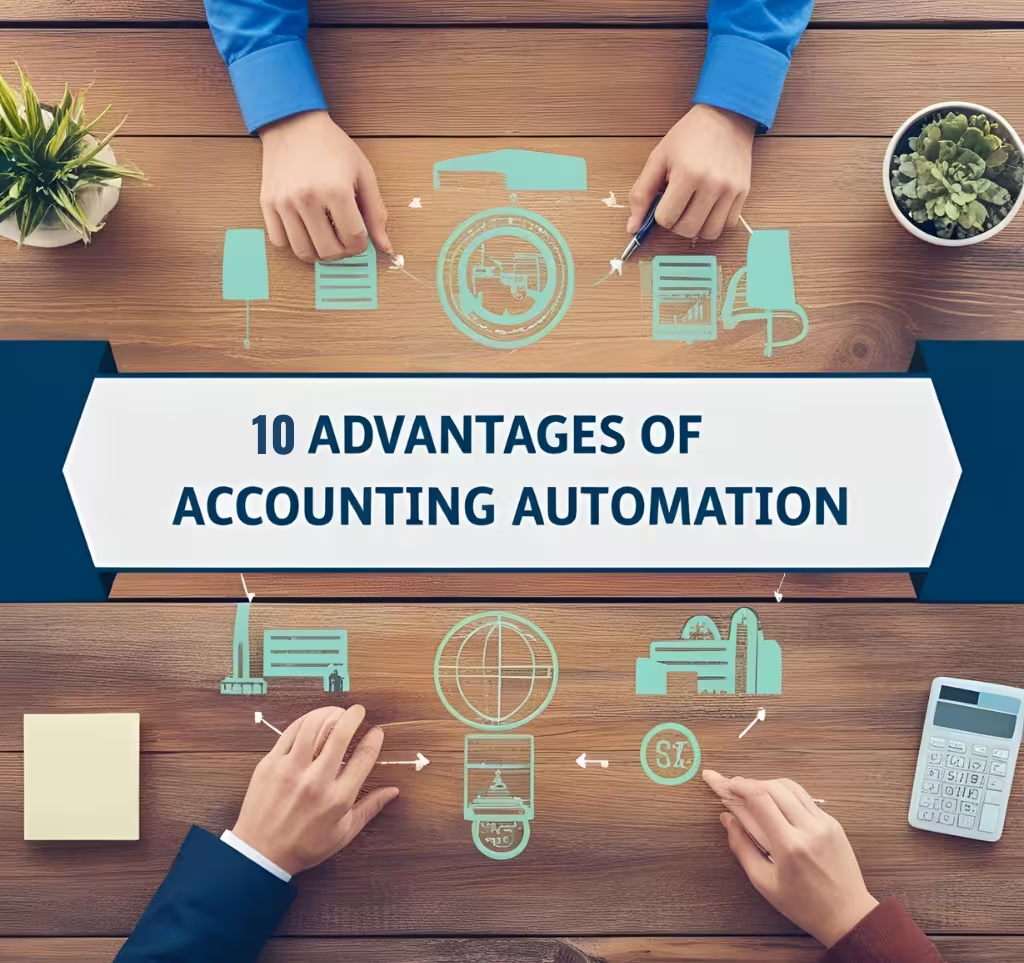10 Advantages of Accounting Automation
Managing finances is at the heart of every business, but let’s be honest… Manual accounting can be a headache. From tracking expenses to generating reports, traditional bookkeeping is time-consuming, error-prone, and often overwhelming.
That’s where accounting automation comes in. By using software to handle repetitive tasks, businesses can save time, reduce errors, and gain better financial insights. But automation isn’t just about convenience. It’s about working smarter.
1. Saves Time on Repetitive Tasks
Manually entering invoices, tracking payments, and reconciling bank statements eats up valuable hours. Automation takes care of these routine tasks, freeing up time for businesses to focus on growth instead of paperwork.
2. Reduces Errors and Improves Accuracy
Human errors—like misplaced decimal points or duplicate entries—can lead to major financial discrepancies. Automated accounting minimizes these risks by accurately recording transactions and detecting inconsistencies before they become costly mistakes.
3. Enhances Compliance and Tax Filing
Tax season doesn’t have to be stressful. Automation ensures all financial records are up-to-date and organized, making it easier to comply with tax regulations. Many accounting tools even offer built-in tax calculation features, reducing the risk of misfiling.
4. Provides Real-Time Financial Insights
Waiting for end-of-month reports to assess financial health is a thing of the past. Automated systems provide real-time data, so businesses can track revenue, expenses, and cash flow at any moment.
5. Improves Cash Flow Management
Late payments and missed invoices can disrupt cash flow. Automated systems send payment reminders, track outstanding invoices, and even schedule recurring transactions, ensuring businesses get paid on time and maintain a healthy cash flow.
6. Increases Security and Data Protection
Financial data is sensitive, and manual processes are vulnerable to fraud or data breaches. Automated accounting solutions come with secure encryption, access controls, and audit trails that keep financial information safe from unauthorized access.
7. Simplifies Payroll Processing
Manually calculating salaries, deductions, and tax withholdings is complex and prone to errors. Automated payroll systems handle everything, from salary calculations to tax filings, ensuring employees get paid accurately and on time.
8. Enables Seamless Integration with Other Business Tools
Automation connects accounting with CRM, invoicing, inventory, and banking tools, creating a fully integrated financial ecosystem. This eliminates the need for manual data transfers and ensures that all business functions stay in sync.
9. Cost-Effective in the Long Run
While investing in automation software may seem like an expense, it actually saves money by reducing labor costs, minimizing errors, and improving efficiency. Businesses can do more with fewer resources, leading to better profitability.
10. Boosts Scalability and Business Growth
As businesses grow, financial complexity increases. Manual accounting can’t keep up with scaling operations, but automation adapts effortlessly. Whether handling 100 or 10,000 transactions, automation ensures smooth financial management at any size.
Final Thoughts
Accounting automation isn’t just a luxury… It’s a necessity for businesses that want to save time, cut costs, and make smarter financial decisions. From error-free bookkeeping to real-time insights, automation transforms the way companies handle finances.
Embracing automation means stepping into a future where accounting isn’t a burden but a strategic advantage. So, is your business ready to make the switch? Because the future of accounting is automated!



